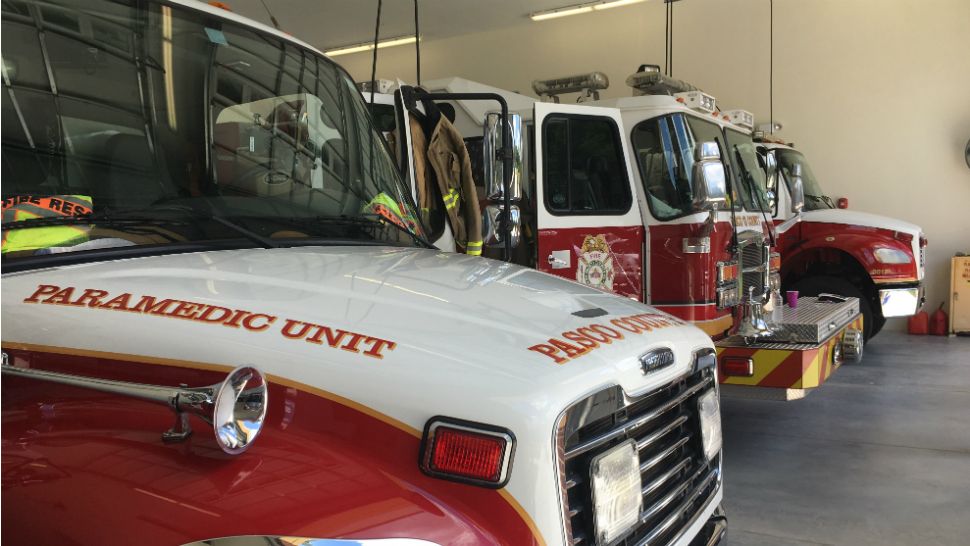NEW PORT RICHEY, FL — One of the new state laws that took effect July 1 grants benefits to firefighters diagnosed with cancer as long as certain conditions are met.
- Legislation to help firefighters diagnosed with cancer
- Firefighters are 9 percent more likely to develop cancer
- Law took effect Monday
- More Pasco County Headlines
“We’re extremely delighted this legislation was put through,” said Pasco County Fire Rescue Chief Scott Cassin. “At the end of the day, our biggest asset is our firefighters. And now we have this coverage that’s going to help our firefighters that currently are receiving cancer treatment and, unfortunately, those that will develop cancer in the future.”
The law applies to firefighters who’ve worked for their employer for at least five years, have not used tobacco products for at least five years, and haven’t held another job within five years that’s proven to create a higher risk for cancer.
Those who qualify will have their treatment covered by an employer-sponsored health plan or group health insurance trust fund. They’ll also receive a one-time cash payout of $25,000 upon the initial diagnosis. Benefits are also available up to 10 years following a firefighter leaving a department as long as he or she met the other requirements and didn’t work as a firefighter after that.
The law also states that if a firefighter passes away from cancer, death benefits are available to families.
According to the International Association of Firefighters, Florida’s law makes it the 47th state to recognize the reality of occupational cancers for firefighters in some way. A spokesperson said with New Jersey expected to sign its own law next week, the only remaining states that do not are Delaware and South Carolina.
A 2013 study from the National Institute for Occupational Safety and Health found that firefighters are nine percent more likely than the general population to develop cancer and 14 percent more likely to die from it.
Cassin said it’s a risk that wasn’t even a consideration when he began his own career as a high school cadet in 1982.
“Not one that crossed my mind, not at all. In fact, we were just talking about some of the things we did back then that we would never consider doing today,” Cassin said.
That includes spending all day at a training fire, covered in soot. The NIOSH study notes that firefighters can be exposed to many known carcinogens, including formaldehyde and benzene, from smoke and debris.
“One of the things that our industry has become very aware of is the materials that are burning in modern day fires. What I’m talking specifically about are all the synthetic materials,” said Cassin. “Everything in your house is probably less than ten years old. Most of that stuff is probably made from synthetic material. That burns much hotter and gives off a lot more than what the stuff that burned 25, 30 years ago did.”
PCFR is already taking steps to prevent its members from developing work-related cancers.
“Cycling our crews out a little bit quicker so now there’s not any one person that’s exposed to the carcinogens for long periods of time. We try to get people off those scenes a lot quicker, get them back to the fire station,” said Cassin.
Crews are also urged to shower as soon as possible after leaving a scene and are provided with ways to clean themselves and their gear while they’re still there.



